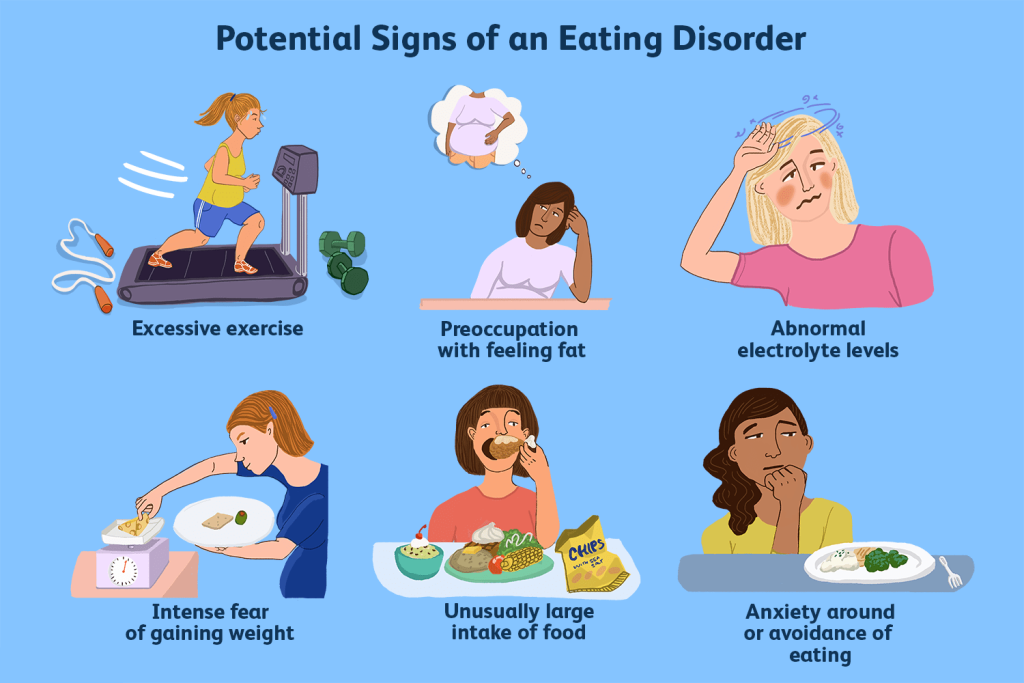Eating Disorder

Anorexia Nervosa
Individual will typically have an obsessive fear of gaining weight, refusal to maintain a healthy body weight, and an unrealistic perception of body image. Many people with anorexia nervosa will fiercely limit the quantity of food they consume and view themselves as overweight, even when they are clearly underweight. Anorexia can have damaging health effects, such as brain damage, multi-organ failure, bone loss, heart difficulties, and infertility with the risk of death being highest in such individuals.
Bulimia Nervosa
This is characterized by repeated binge eating followed by behaviors that compensate for the overeating, such as forced vomiting, excessive exercising or extreme use of laxatives or diuretics. Individuals suffering from bulimia may fear weight gain and feel severely unhappy with their body size and shape. The binge-eating and purging cycle is typically done in secret, creating feelings of shame, guilt, and lack of control. Bulimia has injuring effects, like gastrointestinal problems, severe hydration, and heart difficulties resulting from an electrolyte imbalance.
Binge Eating Disorder
Such individuals frequently lose control over his or her eating. However, it is different from bulimia nervosa as it is characterized by episodes of binge eating but not followed by compensatory behaviors like purging, fasting or excessive exercise. Because of this, many people suffering with binge-eating disorder may be obese and at an increased risk of developing other conditions, such as cardiovascular disease. Individuals who struggle with this disorder may also experience intense feelings of guilt, distress, and embarrassment related to their binge eating, which could influence further progression of the eating disorder.

